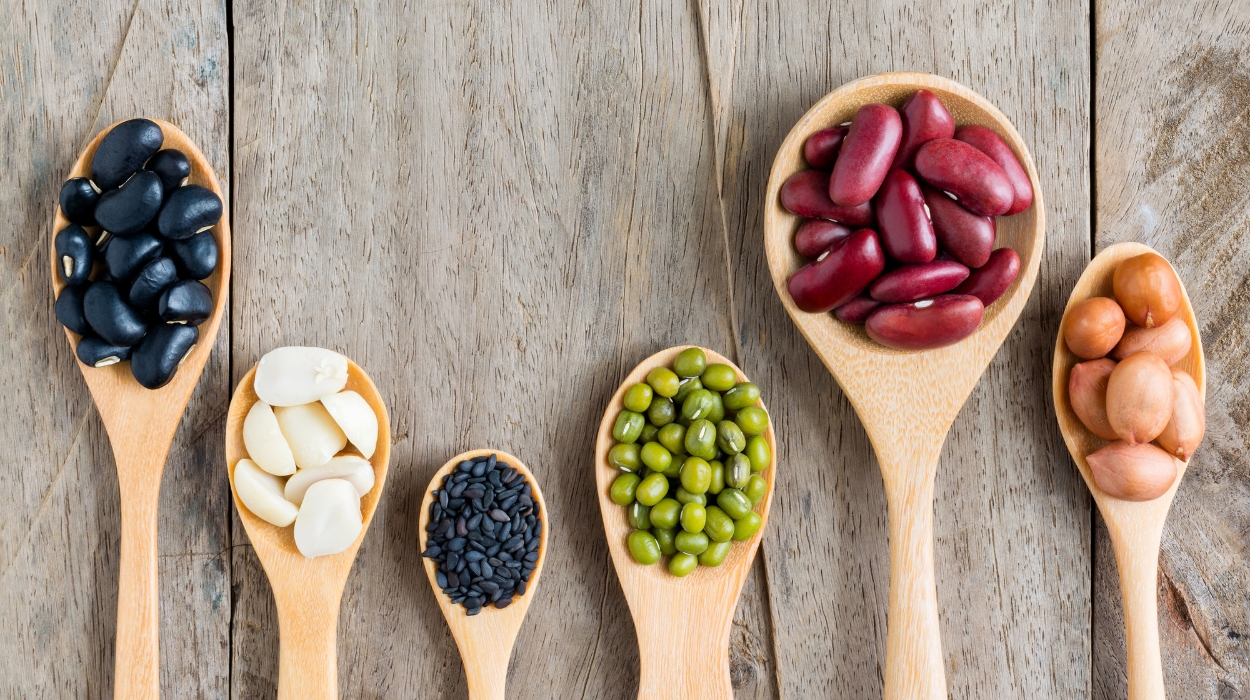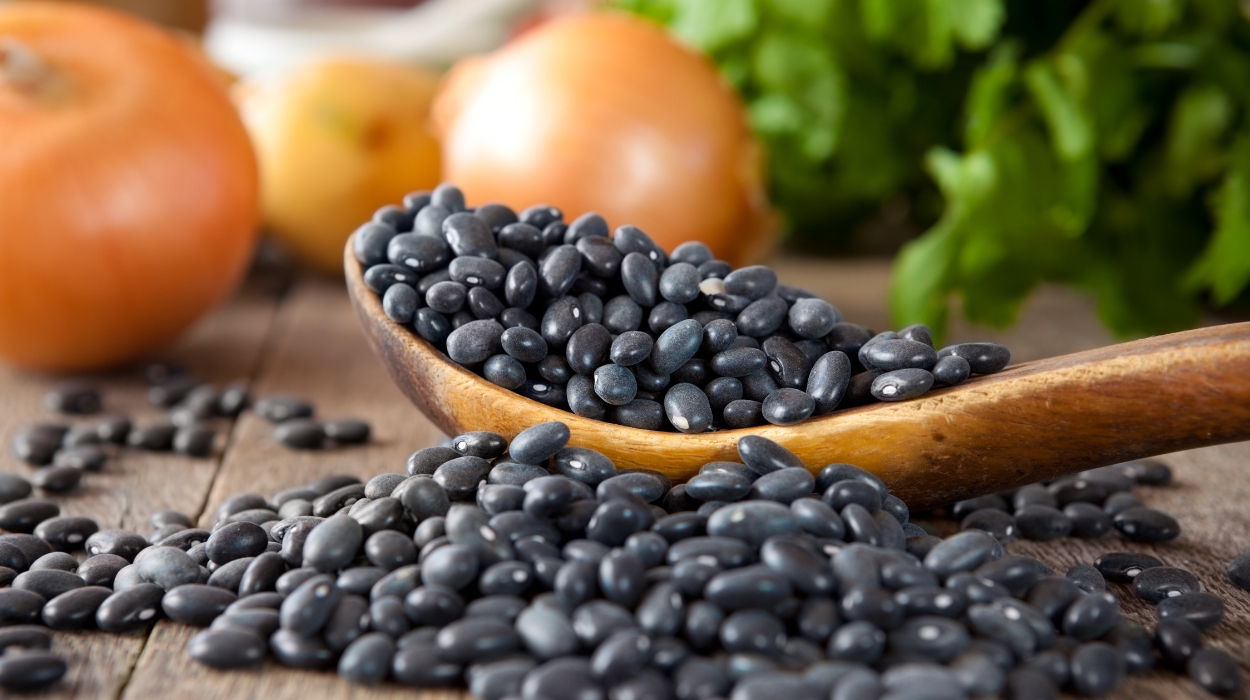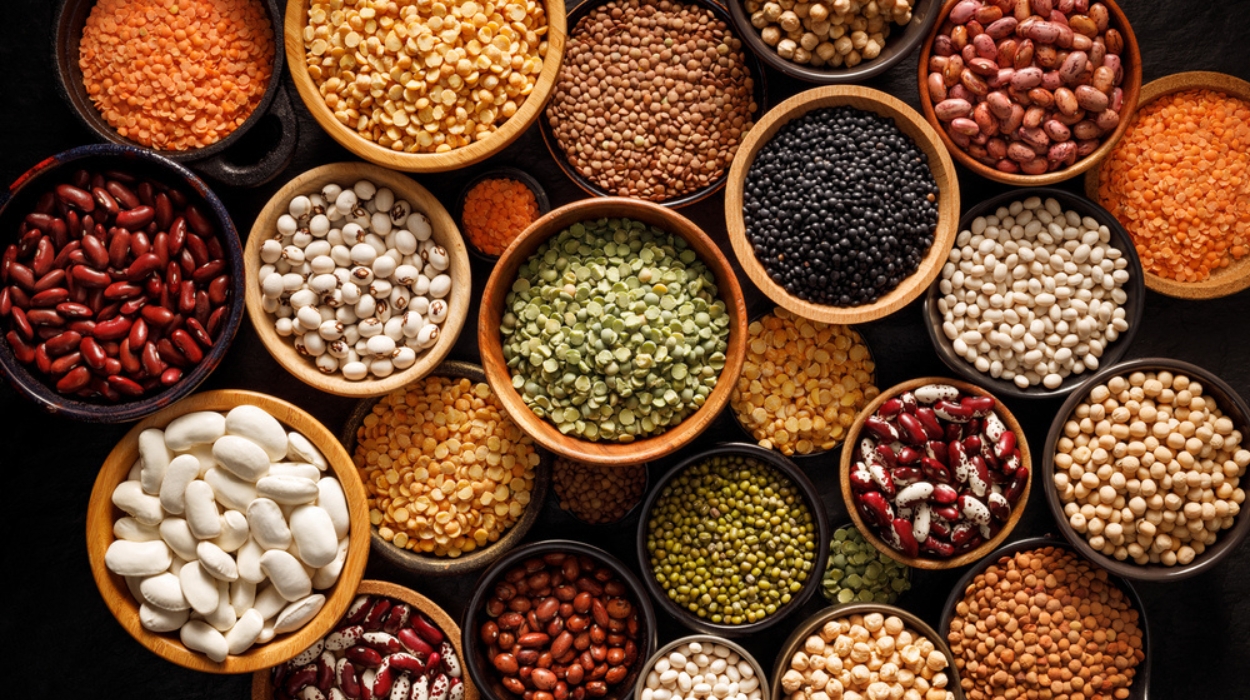Beans are often pushed to the back of the pantry cupboard due to their perceived lack of luxury appeal. However, these little legumes can benefit our stomachs in more ways than one. They pack a punch when it comes to nutritional benefits.
They serve as a sustainable and affordable protein source with a prolonged shelf life. Beans are a convenient and effective option for those embarking on weight loss diets.[1] So, are beans good for weight loss? Explore below and find out more.
Are Beans Good For Losing Weight?
Yes, beans can be good for weight loss. This is because they are high in both fiber and protein, two nutrients that can help you feel full and satisfied. Regularly consuming beans can help extend feelings of fullness, leading to a lower calorie intake and, ultimately, weight loss. Bean consumption can also help control blood sugar and insulin levels, which decreases fat storage. Blood sugar regulation prevents energy crashes, reducing the likelihood of cravings and overeating as well.
Are Beans Good For Weight Loss?

People often wonder if beans are good for losing weight. The short answer is yes, they can be. The properties and nutrient content of beans make them useful for weight loss. Why eat beans for weight loss?
Beans are low in calories,[2] with 143 calories per 100-gram serving. This means you can consume a satisfying portion of beans without significantly increasing your daily calorie intake. They also contain complex carbohydrates,[3] which are digested more slowly.
Complex carbs provide a steady and sustained energy release,[4] helping to maintain stable blood sugar levels. This helps reduce the likelihood of experiencing cravings for unhealthy snacks.[5] The fiber content[6] in beans also promotes satiety, keeping individuals fuller for longer periods.
This contributes to overall weight loss by supporting a balanced and controlled calorie intake. Beans also contain a moderate amount of protein, approximately 9 grams[7] per 100-gram serving.
This can help maintain muscle mass and increase metabolisms.[8] Protein also helps you feel full and satisfied,[9] reducing the impulse to overeat.
Are Beans Good For A Diet: Studies Say Yes
A small-scale trial[6] reported that consuming beans can boost fiber intake, providing 5-7 grams of fiber per half-cup serving. The increased fiber intake led to a greater sense of fullness, prolonging the time before hunger returns and reducing cravings for indulgent or flavorful foods.
Individuals who included beans in their diets had lower body weights, smaller waist circumferences, and reduced blood pressure. They also found that their nutrient and fiber intake increased.
Another investigative study[10] supported these findings, as participants who eat beans regularly also experienced fat loss and a reduction in abdominal circumference.
What Are In Beans?

Whether black, pinto, navy, or lima, beans are rich in essential nutrients, including fiber, protein, vitamins, and minerals. They can also help contribute to a diet with a calorie deficit to lose weight. Beans are naturally low in saturated fat and gluten-free as well.
This makes them suitable for heart health, gut health, and gluten sensitivities. Nutritional profiles vary among bean types. For example, a single serving (1 cup) of cooked pinto beans[11] is 245 calories. In a serving, they contain:
- Iron: 2.1 mg
- Fiber: 9 grams
- Fat: 0.7 grams
- Folate: 172 mcg
- Potassium: 436 mg
- Magnesium: 50 mg
- Protein: 9 mg
- Carbohydrates: 26.2 grams
Beans also contain vitamins B1, B6, E, and K, along with copper, zinc, manganese, and selenium. Beans are an excellent single source of additional micronutrients,[12] which are an important part of every diet.
What Beans Are Good For Weight Loss?
With numerous types of beans available, it’s natural to wonder which ones are best for weight loss. Although the entire legume family offers many health benefits, there are several options that can help with weight loss.
Let’s look at some common beans that can help promote weight loss:
- Lentils
- Pinto beans
- Black beans
- Kidney beans
- Garbanzo beans or chickpeas
While each type of bean on the list varies in nutritional profiles, their shared identity as legumes mean they have common properties. These properties are useful in promoting weight loss. The beans mentioned above are all rich in dietary fiber,[13] which helps promote satiety.
Beans are also a source of plant-based protein, which helps you feel fuller for longer periods. This prevents overeating, reduces the temptation to snack on or consume high-calorie foods, contributing to weight loss.
The fiber and protein content in beans can also help regulate blood sugar levels. Studies[14] show that plant-based protein can help improve insulin sensitivity.[15] The Centers for Disease Control and Prevention[16] notes that fiber can also contribute to helping manage blood sugar levels. Steady or regulated blood sugar levels help prevent insulin overload,[17] which is a risk factor for weight gain and obesity.
Incorporating Beans Into Your Diet
Beans can be incorporated into various meal plans and diets. It isn’t necessary to include them in every meal. However, frequent consumption may promote weight loss and help you achieve the health benefits beans have to offer.
Incorporating complex carbohydrates like these beans into your diet can be beneficial when aiming for a lower intake of carbs per day to lose weight. You can use them to make bean burritos, salads, soups, stews, and even use them as a meat substitute.
You can also add them to diets like:
- Mediterranean Diet[18]: While not exclusively centered around beans, the Mediterranean diet encourages the consumption of legumes, including beans, as part of a balanced and heart-healthy eating pattern.
- 7-Day Bean Diet: As the name suggests, this diet emphasizes incorporating a variety of beans into meals for seven consecutive days. Meals typically include different types of beans, vegetables, and lean proteins.
- DASH Diet[19]: The DASH (Dietary Approaches to Stop Hypertension) diet recommends using beans as a source of protein and fiber in your diet. This supports both heart health and weight management.
When adding beans to your diet, be mindful of portion sizes and combinations. Eating right means knowing which foods to avoid to lose weight. Combine beans with various food sources like vegetables, brown rice, and even meat. For extra help, you can also use a fat burner supplement to enhance your bean-based diet.
Conclusion
Whether it’s cooked beans, refried beans, dried beans, or even canned beans, adding beans to your diet can help with weight loss. They are a valuable source of fiber, protein, and nutrients. They can help with appetite control, regulating blood sugar, and weight loss.
If beans aren’t normally part of your diet, slowly introduce them into your diet based on your personal tolerance and dietary needs. They can form part of a healthy diet and can be easily incorporated with other foods. Beans are a solid option if you’re looking for a dietary staple that can support weight loss efforts and other health goals.
Frequently Asked Questions
Yes, they can. Beans are a valuable ally in the battle against belly fat due to their rich soluble fiber content. This fiber helps combat inflammation linked to fat accumulation in the abdominal area.
Black beans, kidney beans, and lentils are among the options for weight loss due to their high fiber and protein content. Consuming these beans with adequate water to lose weight can contribute to effective weight management.
Yes, it’s possible. Incorporating beans into daily meals can be a helpful strategy for weight loss. However, they should be consumed as part of a balanced, healthy diet. You could use beans to replace high-calorie options. It’s also important to stay within recommended nutrition guidelines.
Not necessarily. Although beans don’t have direct calorie-burning properties, their protein and fiber content can positively impact metabolisms, help control calorie intake, and indirectly help the body use excess calories for energy.
 Evidence Based
Evidence Based

